
Health
14:54, 30-Jul-2018
Speaking to the global health chief: An interview with WHO’s Dr Tedros
Updated
14:02, 02-Aug-2018
By James Chau
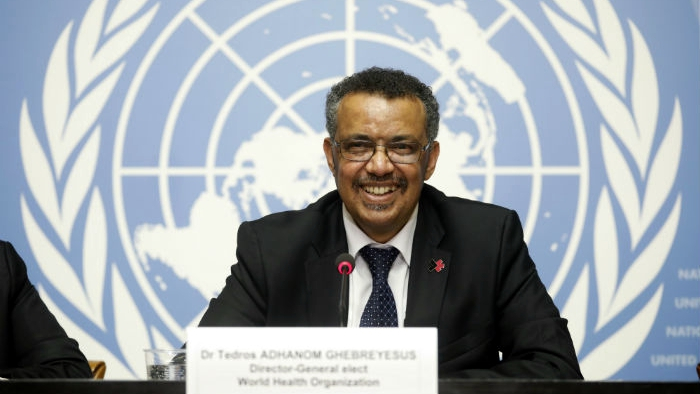
Coming into office on a strong wave of support, Tedros Adhanom Ghebreyesus – or Dr Tedros – as he is popularly referred to, took the helm of the World Health Organization (WHO) in July last year.
Universal health coverage (UHC) was a central theme of his election campaign, and so it’s no surprise that he has made this a pillar of his leadership in the 12 months since. At its simplest, UHC is accessible and affordable health care for everyone, where “all individuals and communities receive the health services they need without suffering financial hardship.” It’s not new. When it was founded in 1948, WHO’s constitution made clear that health was a fundamental human right. What Dr Tedros is seeking to achieve today takes this vision to a different level.
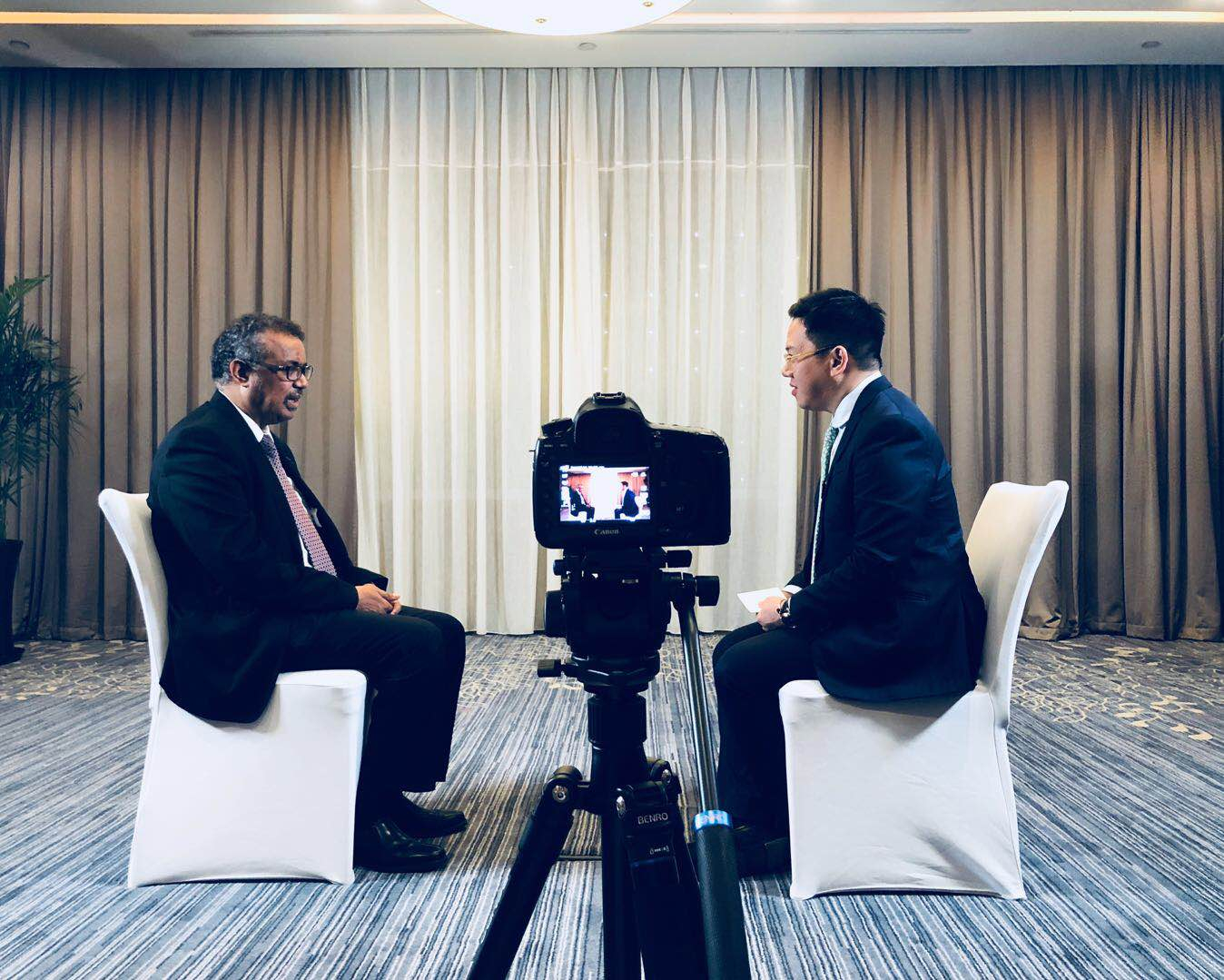
WHO Director-General Tedros Adhanom Ghebreyesus (L) and CGTN Special Contributor James Chau /Photo by James Chau
WHO Director-General Tedros Adhanom Ghebreyesus (L) and CGTN Special Contributor James Chau /Photo by James Chau
I interviewed him during his visit to Beijing in July 2018 – almost one year to the day since he took office. The timing lent a certain symbolism to our conversation, but a lot has already happened. A new and ambitious strategic plan is in place with three primary targets: by 2023 one billion more people will benefit from UHC, will be better protected from health emergencies, and will enjoy better health and well-being. WHO’s end goal is that this will help save up to 30 million lives.
But what I really wanted to know is what’s required to transform UHC from a dream to a reality?
In a previous interview, Dr Tedros spoke about the early death of his brother, and how this shaped his later career. This time, he shared a different story. In 1988, as a young diplomat, he was sent to Denmark for four months of study. Before he left Ethiopia, he received a health insurance card in the post – Denmark not only covers its own people, but its visiting guests, too. What’s more, in Dr Tedros’ case, his card was valid for the entire year ahead.
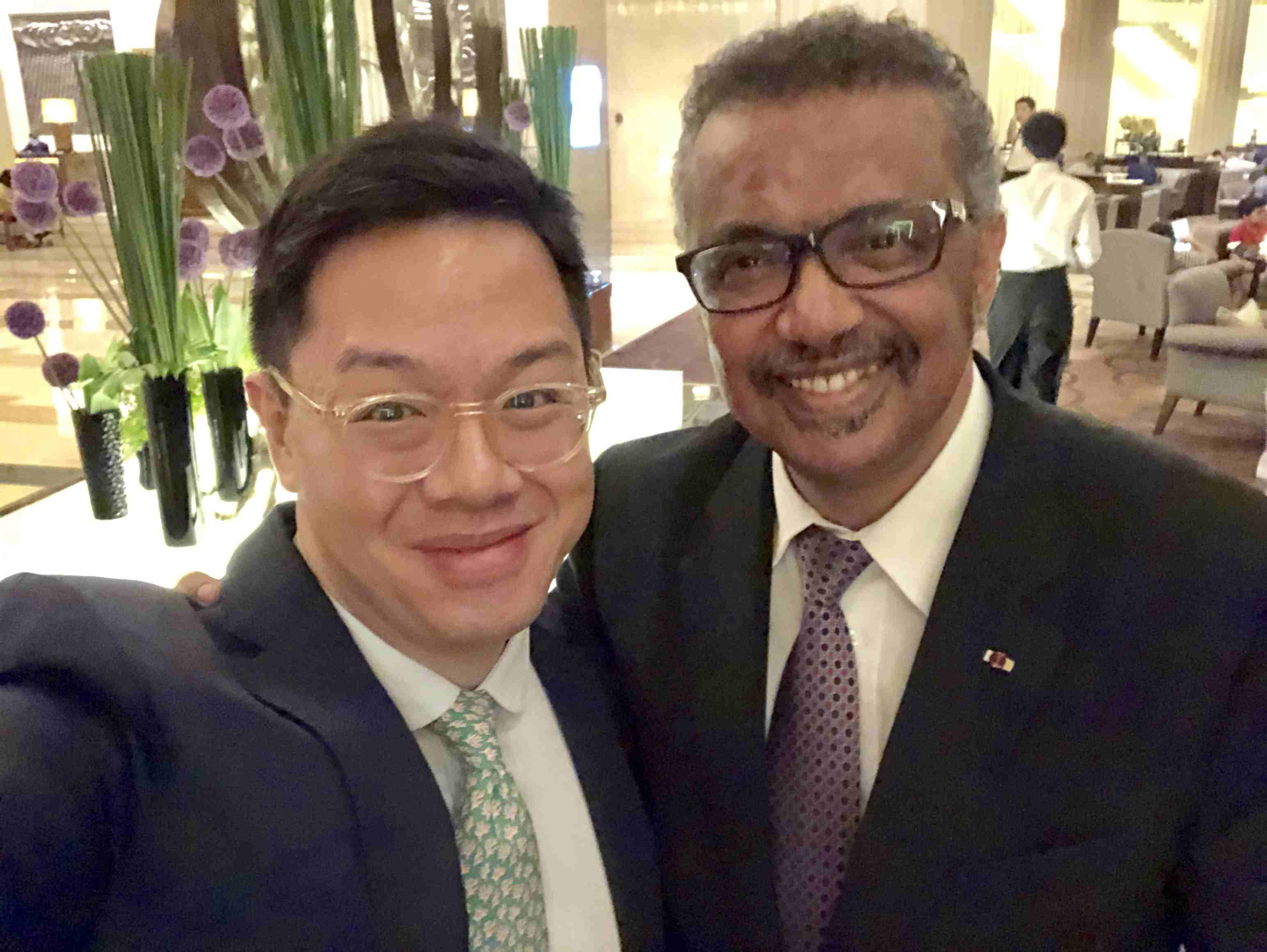
WHO Director-General Tedros Adhanom Ghebreyesus (R) and CGTN Special Contributor James Chau /Photo by James Chau
WHO Director-General Tedros Adhanom Ghebreyesus (R) and CGTN Special Contributor James Chau /Photo by James Chau
It was the first time he had received any kind of health coverage himself, and it was the first time he witnessed UHC in motion. This, he says, is the reason why he knows it can be achieved. Imagine a world where we don’t need to worry about health coverage.
You can hear this story and more in our interview. He speaks about how he achieved his strategic plan a year ahead of schedule, why he opens his doors once a week to his staff in Geneva, and how he is able to achieve consensus at a time of deep political and social divisions.
14:58
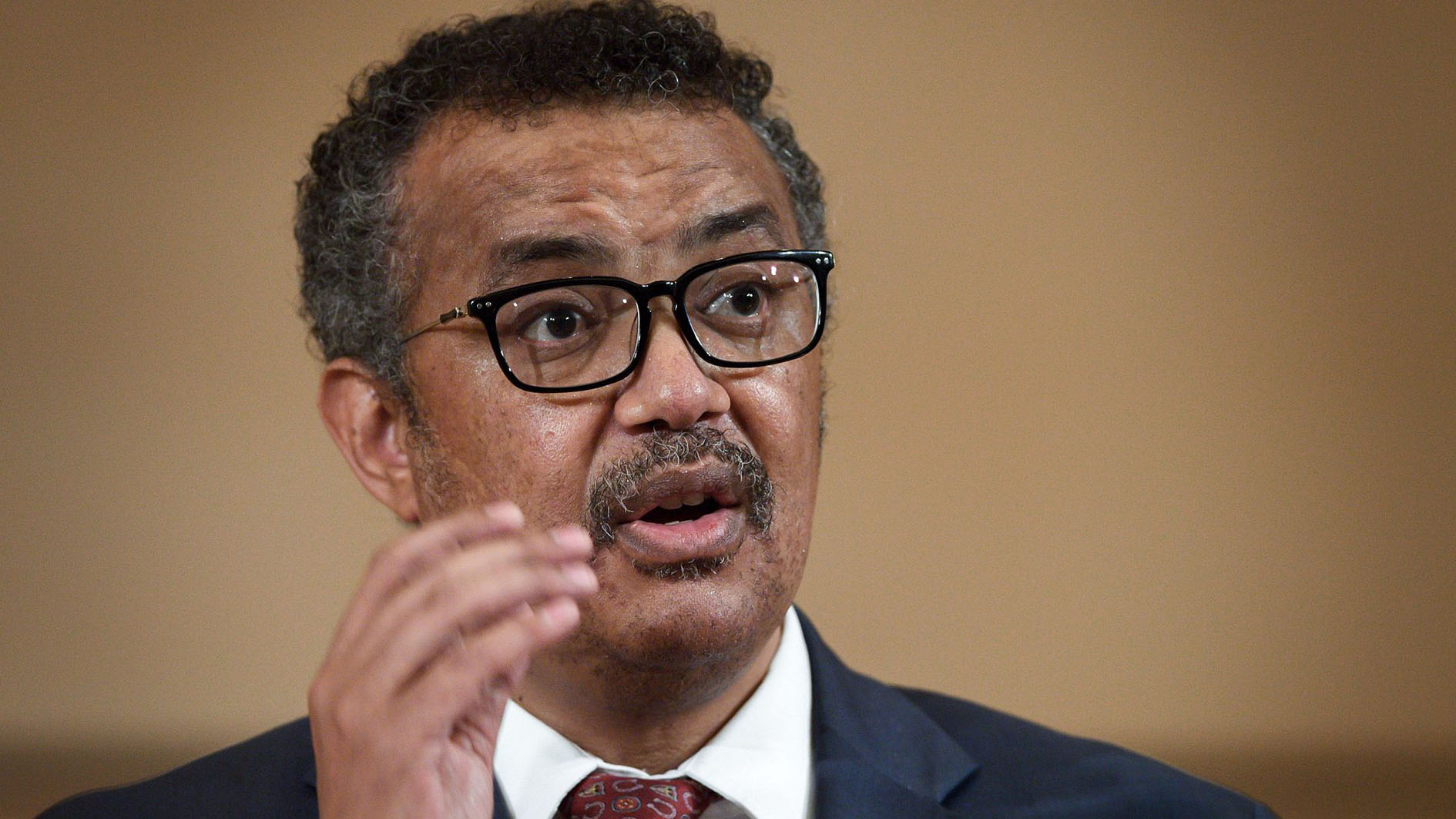
This is a very different interview to the one we had a year ago, and in a way, it’s a fascinating follow-up to what he promised then, and how much he has been able to deliver since.
15:22
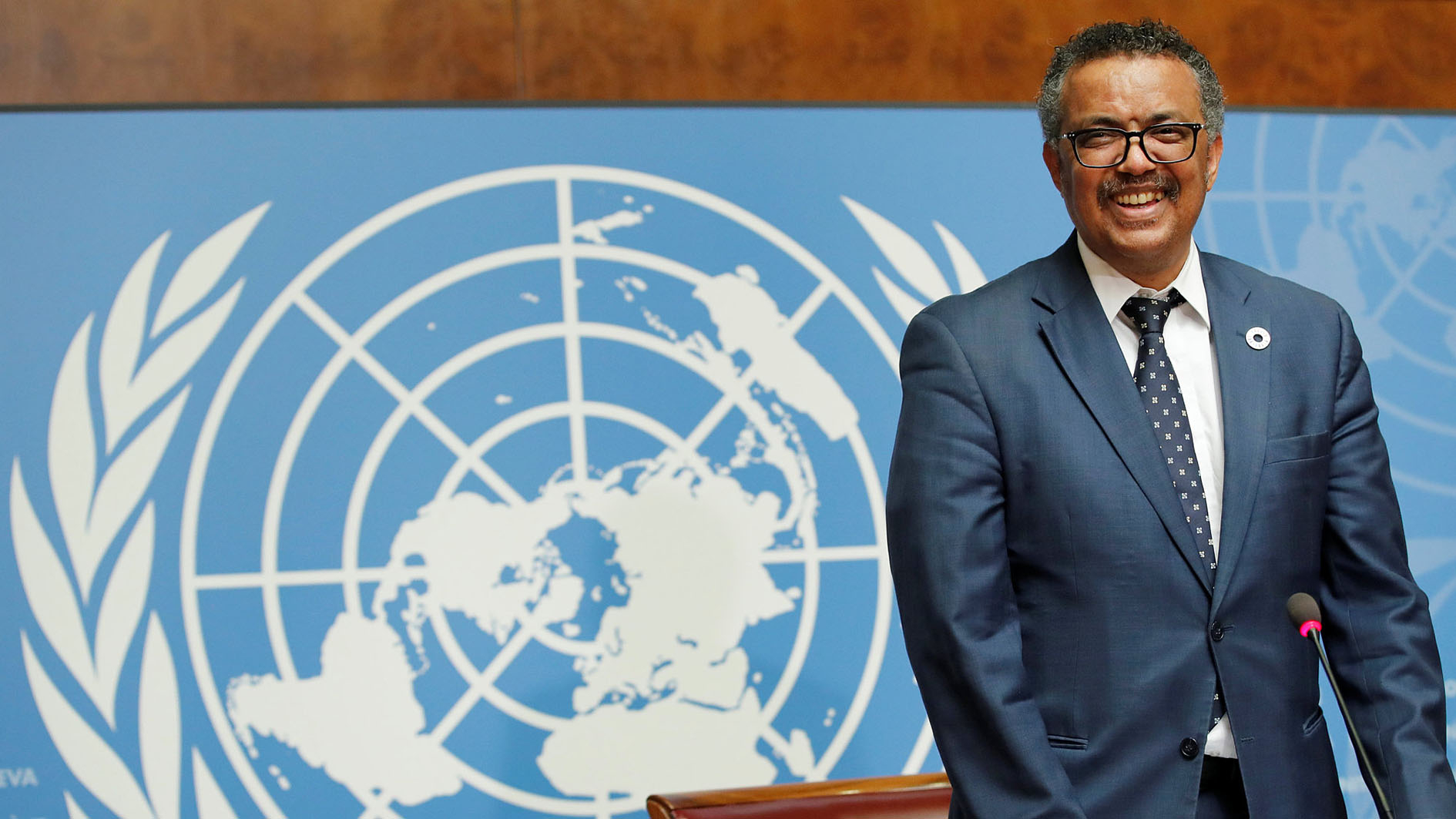
It is easy to forget that WHO is behind many of our news headlines, and it is even easier to forget that WHO is not just a technical agency, but a humanitarian movement made up of many men and women. It is timely to remember the death of Dr Carlo Urbani, a microbiologist who worked for WHO, and died after being infected with the SARS virus. Fifteen years on, Dr Tedros recently met with his wife and children – in tribute to his work, and in remembrance to the sacrifice he made.
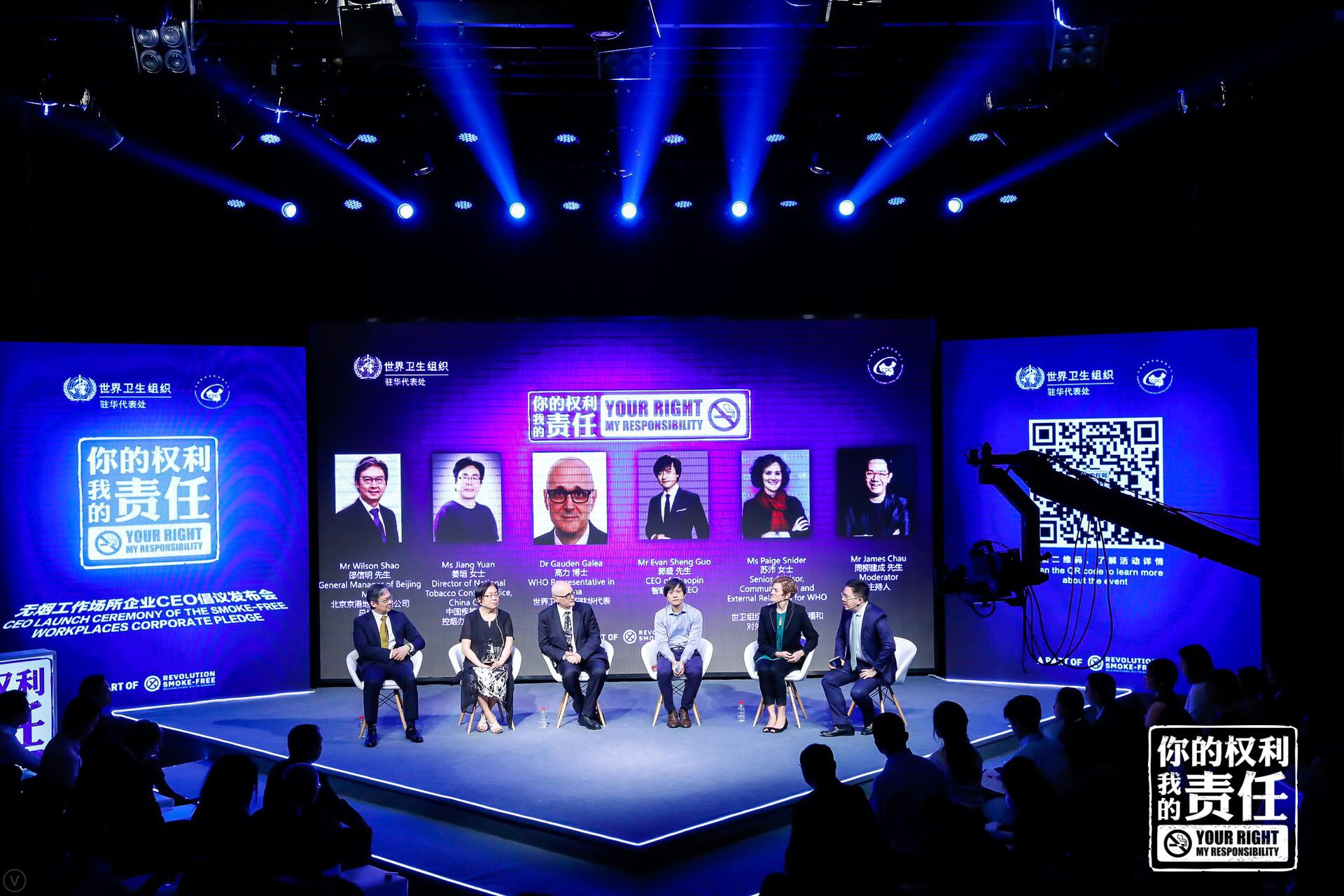
A WHO event on smoke-free workplaces /Photo by James Chau
A WHO event on smoke-free workplaces /Photo by James Chau
Before he died, Dr Urbani explained to his wife: “If I can't work in such situations, what am I here for? Answering e-mails, going to cocktail parties and pushing paper?”
He, and others, have given so much more.
(James Chau is a CGTN Special Contributor and a WHO Goodwill Ambassador)
(Top image: WHO Director-General Tedros Adhanom Ghebreyesus /Photo by James Chau)

SITEMAP
Copyright © 2018 CGTN. Beijing ICP prepared NO.16065310-3
Copyright © 2018 CGTN. Beijing ICP prepared NO.16065310-3